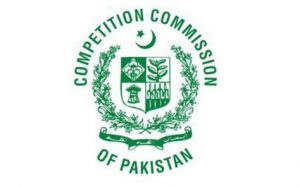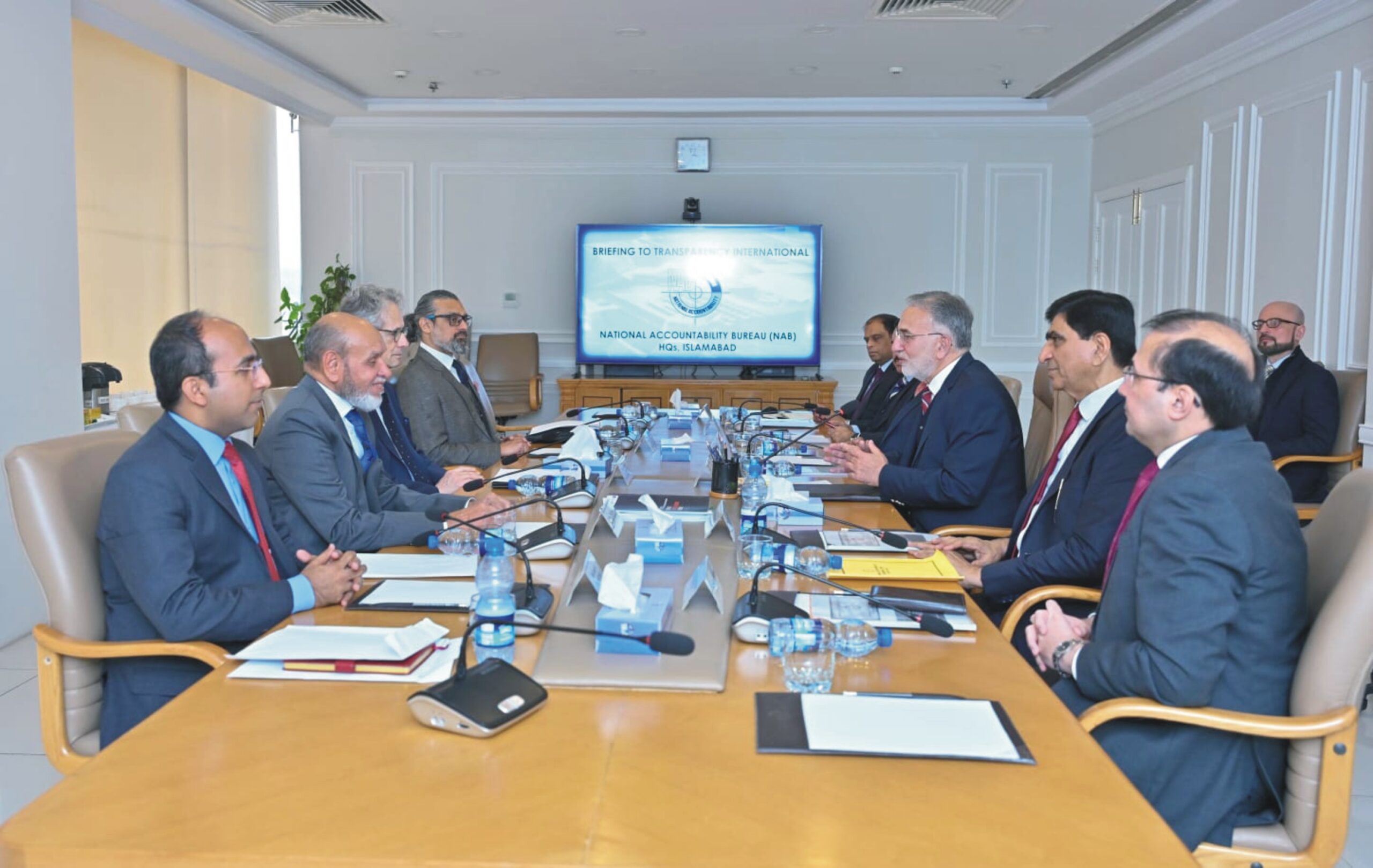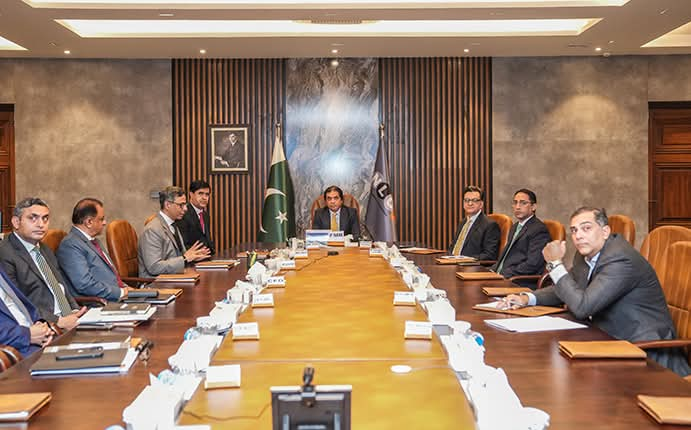 Islamabad, 25 June 2021: The Competition Commission of Pakistan (CCP) held the 22nd meeting of the Competition Consultative Group sharing the CCP’s initiatives, performance and strategic vision.
Islamabad, 25 June 2021: The Competition Commission of Pakistan (CCP) held the 22nd meeting of the Competition Consultative Group sharing the CCP’s initiatives, performance and strategic vision.
A presentation was also given on the CCP’s draft Report on SME Sector exploring the ways and means of improving competitiveness and economic efficiency of SMEs by providing recommendations to the draft SME Policy Framework.
The CCP Chairperson Ms. Rahat Kaunain Hassan, chaired the meeting, which was attended by the CCP Members Ms. Shaista Bano, Ms. Bushra Naz Malik, Mujtaba Ahmad Lodhi, the Director Generals and heads of departments, and a wide range of stakeholders including Tariq Iqbal Khan, Chairman Audit Oversight Board, Ms Birgit Lamm, Country Head, Friedrich Naumann Foundation Pakistan, Sardar Yasir Ilyas, President of Islamabad Chamber of Commerce & Industry, Shahraiz Ashraf Malik, Vice President Rawalpindi Chamber of Commerce & Industry, Mr. Abdul Aleem, General Secretary OICCI, Rifat Parvez, Additional Secretary/Executive Director General, Board of Investment, Sajjeed Aslam, Head ACCA Pakistan, and senior officials SECP, PPRA, NEPRA, IPO, PTA, IFPRI, PIDE, Pakistan Microfinance Network, and SDPI.
The Competition Consultative Group (CCG) is an informal think tank which the CCP established in 2008 to consult with the stakeholders on competition-related matters, but it became redundant after 2013. Soon after taking charge of her office for a new term as Chairperson in July 2020, Ms. Rahat Kaunain Hassan decided to revive the forum.
Briefing the participants about the CCP’s strategic vision, the Chairperson informed that while enforcement and policy intervention remain the top priority, the other key areas of focus include the essential commodities for removing anti-competitive distortions in the market, public procurement for reducing collusive practices and promoting fair competition, concession agreements for regulating exclusivity, digital markets and e-commerce for consumer protection, improving the economic efficiency of SMEs and SOEs, collaborations and partnerships for providing guidelines, improving compliance by strengthening the Leniency Framework, and knowledge-based advocacy.
She further said that CCP has initiated the process of hiring sectoral specialists in around 12 sectors, i.e. automobile, cement, energy (electric power and renewable energy), ghee-cooking oil, sugar, wheat, banking, pharmaceutical, poultry, education, road construction, and steel. She also briefed them on the CCP’s initiative to develop and declare e-commerce policy guidelines to build consumer confidence in the electronic marketplace and encourage fair trade practices to prevent any possible abuse and deceptive marketing practices in the e-commerce domain.
The CCP shared with the participants that the past year has been the year of enforcement. From July 2020 to June 2021, the CCP completed 20 enquiries, initiated 21 new enquiries, conducted 12 search and inspections, issued 120 show-cause notices, completed hearings of 82 sugar mills in the sugar cartelisation case, and has passed four orders. In the same period, the CCP issued two Policy Notes to the government in the sugar and wheat sectors and processed 49 mergers & acquisitions and 40 exemption applications.
The participants were also briefed on the draft report, ‘Promoting Economic Efficiency of Small and Medium Enterprises (SMEs) in Pakistan.’ The report draws a comparison between the SME Policy 2007 and the new Draft SME Policy 2020 and offers recommendations under the CCPs mandate to further improve the draft SME Policy Framework.
During the session, Hashim Raza, CEO SMEDA, lauded the initiative and assured his full support to CCP. Rifat Parvez, Additional Secretary/Executive Director General BOI, said that the CCP’s role was crucial in creating a conducive environment for foreign direct investment in Pakistan. The OICCI General Secretary Abdul Aleem, assured OICCI’s full support to CCP in creating a competitive business environment.







